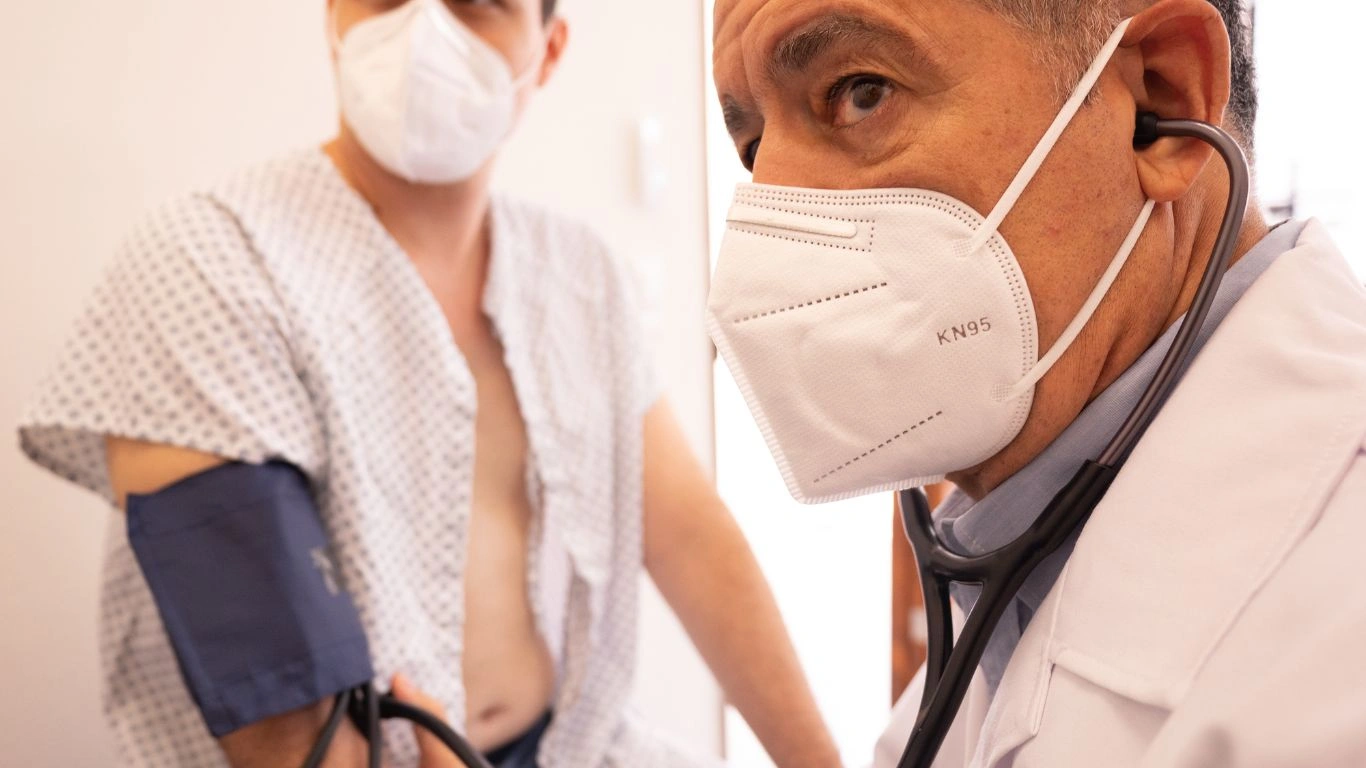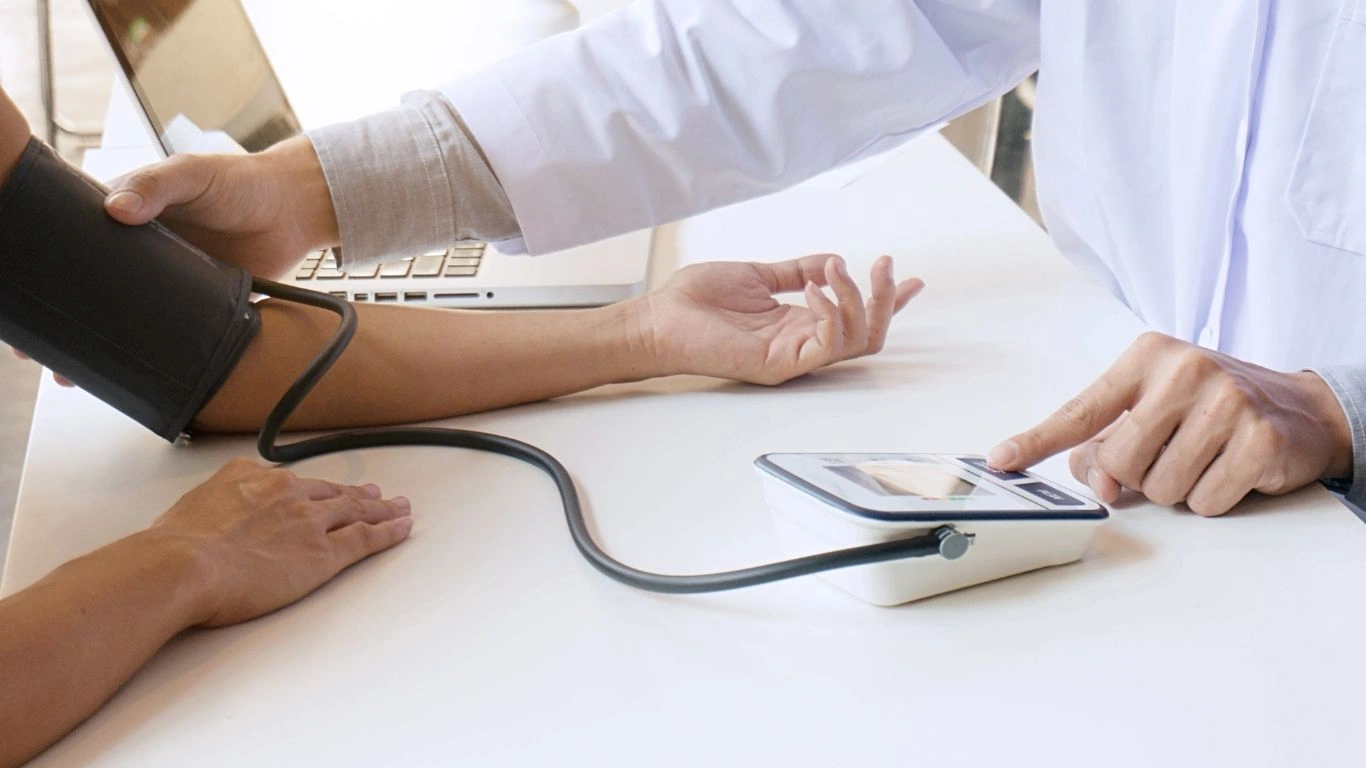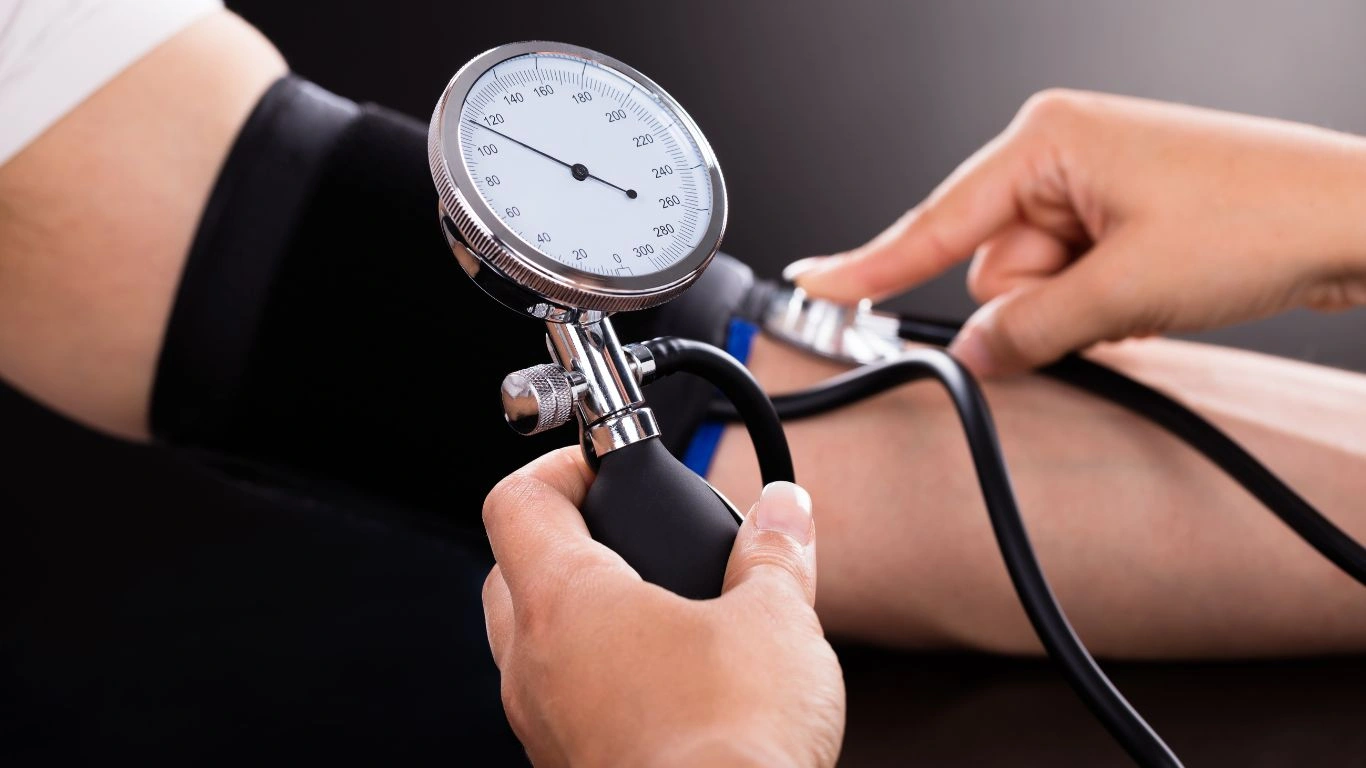Can Gut Bacteria Help Regulate Blood Pressure? Discover How
Can gut bacteria help regulate blood pressure? I know, it sounds like a plot twist in a medical thriller. When I first heard about this connection a few years ago, I raised an eyebrow too. As an internal medicine physician who spends most of her time elbow-deep in hypertension management, I’ve seen it all—salt-sensitive patients, medication-resistant cases, the occasional miraculous response to lifestyle change. But gut bacteria? That was new territory. Turns out, it’s not just about what we eat—it’s also about what our microbiome does with it. So let’s talk about poop bugs and blood pressure, shall we?
How I Stumbled Upon the Gut-Heart Connection

A few years back, I had this one patient—we’ll call him Dave. Late 50s, high-stress job, borderline cholesterol, and his blood pressure just wouldn’t budge despite three different antihypertensives. Out of curiosity (and maybe frustration), I suggested a gut-focused approach. He looked at me like I’d asked him to adopt a goat. But a few months into a probiotic-rich diet and fiber boost, his numbers started behaving. Coincidence? Maybe. But once you start noticing patterns like that in more than one patient, you dig deeper.
The Science Behind the Buzz: What We Know So Far

So, can gut bacteria help regulate blood pressure?
Absolutely—at least, that’s what the emerging research is pointing toward. The gut is home to trillions of bacteria (collectively known as the gut microbiota), and these tiny tenants do more than just break down food. They produce substances like short-chain fatty acids (SCFAs) that influence blood vessel tone, reduce inflammation, and even modulate our sympathetic nervous system. All of these play a role in blood pressure regulation.
Now, we’re not talking about a miracle yogurt that replaces your meds. But it’s becoming clear that the composition and diversity of your gut flora may amplify or dampen how your body handles blood pressure—especially under stress or dietary strain.
Meet the MVPs of the Microbiome
Some of the key players here include:
- Lactobacillus: Known to support gut barrier integrity and reduce inflammation.
- Bifidobacterium: Helps produce SCFAs and maintain a balanced gut environment.
- Akkermansia muciniphila: A newer kid on the block, linked to metabolic health and possibly cardiovascular balance.
Interestingly, studies in both animals and humans show that people with high blood pressure often have less diversity in their gut flora and lower levels of beneficial microbes. So, it’s not just about what’s there—it’s about what’s missing.
How the Gut Talks to the Heart (Yes, Literally)

The Gut-Brain-Heart Axis
Here’s where things get both fascinating and a little sci-fi. Your gut and your brain are in constant conversation through the vagus nerve—a communication superhighway. And your cardiovascular system? It’s listening in on that chat.
Microbial byproducts like SCFAs, trimethylamine N-oxide (TMAO), and lipopolysaccharides (LPS) enter the bloodstream, influence immune responses, and affect vascular function. Some of these, like TMAO, have been associated with increased cardiovascular risk. Others, like SCFAs, help relax blood vessels and reduce oxidative stress.
It’s kind of wild, right? Tiny bacteria in your gut sending chemical messages that help decide how tight or relaxed your arteries are. That’s like your houseplants deciding your mood. And yet, the evidence keeps growing.
Clinical Pearls from the Trenches
From my own practice, here’s what I’ve noticed with patients who’ve embraced gut-friendly changes:
- They’re more responsive to medication—sometimes needing lower doses.
- They often report better digestion, sleep, and even mood (bonus!).
- Over time, their inflammatory markers—like hs-CRP—tend to drop.
Now, I’m not saying probiotics and prebiotics are the new ACE inhibitors. But as part of a bigger picture? They’re a surprisingly powerful support act.
Why This Matters (and Why It’s Still Under the Radar)
Despite the growing pile of research, most standard hypertension guidelines barely mention the microbiome. And I get it—this is still a new frontier. We need more randomized controlled trials, better-defined dosing protocols for probiotics, and a deeper understanding of microbial metabolites. But that doesn’t mean we ignore the signs. In practice, we often have to lead the science, even if it means coloring outside the lines.
I’ve come to see the gut as a partner in care, not just a sidekick. If we’re treating hypertension but ignoring the microbiome, we’re possibly missing a major piece of the puzzle. And for patients who’ve “tried everything,” this can be a game-changer—both physiologically and psychologically.
How to Support Your Gut Health for Better Blood Pressure Control

By now, you might be wondering how to tap into this fascinating gut-blood pressure connection. Can you just pop a few probiotic pills and call it a day? Well, it’s not quite that simple, but there are some manageable lifestyle changes that could make a huge difference. In fact, I’ve seen some of the most dramatic shifts in blood pressure happen when patients pair a few strategic gut-friendly habits with their usual treatment plans. Let’s break it down.
Probiotics: Not Just for Digestion
I’ll be honest—when people think of probiotics, they often imagine relief from bloating or an upset stomach. But the truth is, these little powerhouses can do a lot more. Probiotics—found in fermented foods like kefir, kimchi, sauerkraut, and, of course, yogurt—are essentially “good” bacteria that help keep your gut flora in check.
In terms of blood pressure, probiotics have shown some pretty interesting results. For example, studies suggest that specific strains of Lactobacillus and Bifidobacterium can help reduce systolic and diastolic blood pressure by enhancing your gut’s production of SCFAs. These short-chain fatty acids play a significant role in reducing inflammation and promoting healthy blood vessel function.
But I’m not just talking about slapping a probiotic capsule in your daily routine. The real magic happens when you combine probiotics with prebiotics—fiber-rich foods that “feed” these good bacteria.
Prebiotics: The Unsung Heroes of Blood Pressure Regulation
If probiotics are the rockstars, then prebiotics are the roadies—making sure everything runs smoothly behind the scenes. These fiber-rich foods are found in things like onions, garlic, bananas, oats, and asparagus. They’re not digested by your body, but the bacteria in your gut *love* them.
When you feed your gut bacteria with prebiotics, you’re setting the stage for a stronger microbiome, which in turn supports blood pressure regulation. Think of it as building a stronger, more efficient team. The better the team, the better the outcomes—whether it’s reduced inflammation, improved insulin sensitivity, or better blood vessel dilation.
What You Eat: A Vital Link Between Gut Health and Hypertension

What we eat plays a massive role in gut health, and thus, in regulating blood pressure. The standard American diet, high in processed foods and low in fiber, is the perfect recipe for gut imbalance and elevated blood pressure. But it’s never too late to make some positive changes. By focusing on anti-inflammatory, gut-healing foods, we can support both our blood pressure and our overall well-being.
Here’s what I recommend to my patients to help support a healthier gut and blood pressure:
- Fiber, fiber, fiber: Aim for a variety of fruits, vegetables, whole grains, and legumes. These foods not only provide prebiotics but also help balance your blood sugar and support heart health.
- Fermented foods: Add in yogurt, kefir, kombucha, kimchi, or miso for a daily probiotic boost. Your gut (and blood pressure) will thank you.
- Healthy fats: Incorporate sources of omega-3 fatty acids from fatty fish (like salmon), flaxseeds, and walnuts. Omega-3s are known for their anti-inflammatory properties and may help reduce blood pressure.
- Leafy greens and vegetables: They’re rich in magnesium, a mineral that can help relax your blood vessels and lower blood pressure.
My patients often ask me, “How much of this stuff do I actually need?” Well, there’s no one-size-fits-all answer, but I suggest aiming for at least one serving of a fermented food and a couple of servings of high-fiber vegetables every day. Small changes, consistent habits—that’s what works.
And What About the Things You Should Avoid?
Just as there are foods that help your gut and blood pressure, there are foods that can make things worse. If you want to give your gut a fighting chance at regulating blood pressure, here are some things to limit or avoid:
- Refined sugars and processed foods: They contribute to gut imbalance and inflammation. The less, the better.
- Excessive alcohol: This can disrupt gut health and elevate blood pressure.
- Excessive salt: Salt is notorious for raising blood pressure. While you don’t need to go completely salt-free, being mindful of your intake is key.
Exercise: The Gut’s Best Friend

If you’re like me, you’ve probably read countless studies about the importance of exercise in managing blood pressure. But did you know that physical activity also directly impacts your gut health? It’s true. Regular exercise—whether it’s brisk walking, yoga, cycling, or even strength training—can promote a more diverse and healthy microbiome.
It’s a two-for-one deal: exercise not only helps lower blood pressure by improving heart health and circulation, but it also fosters a thriving gut. Studies show that regular physical activity can increase the abundance of beneficial bacteria like Faecalibacterium prausnitzii (try saying that three times fast) and Akkermansia muciniphila, both of which are linked to better metabolic and cardiovascular health.
So, whether you’re doing it for your heart or your gut (or both!), exercise is a win-win. I often tell my patients that just 30 minutes a day can make a noticeable difference—whether you’re walking, dancing, or taking the stairs instead of the elevator. It doesn’t have to be complicated!
Are There Any Risks to Using Probiotics for Blood Pressure Control?

With all the buzz around probiotics and gut health, you might be wondering if there’s any downside to jumping on the bandwagon. After all, anything that affects your body on a deep level deserves a bit of scrutiny. From my experience, while probiotics are generally safe for most people, there are a few things to keep in mind.
Possible Side Effects
For the majority of my patients, probiotics are a great addition to their health regimen. But like anything, they’re not without their occasional hiccups. Some people experience mild digestive upset when they first start taking probiotics, such as bloating or gas. This is pretty common and often passes after a few days as your gut adjusts to the influx of new bacteria. If the discomfort doesn’t resolve, it’s a good idea to adjust the type or amount of probiotics being used.
There are also a small number of people with compromised immune systems or specific underlying health conditions who should check with their doctor before starting probiotics. It’s a good rule of thumb to talk to your healthcare provider if you have a chronic illness like heart disease or are on immunosuppressive medication.
Choosing the Right Probiotic
Not all probiotics are created equal. You’ll see a lot of different strains advertised—Lactobacillus, Bifidobacterium, Saccharomyces boulardii, etc.—but which one should you choose for blood pressure support? Here’s where things get a little tricky. The evidence for specific strains improving blood pressure is still emerging, so there’s no one-size-fits-all recommendation. However, I often recommend looking for probiotics that have clinical backing for their cardiovascular benefits. If you’re unsure, a good rule of thumb is to opt for a product that has at least 10 billion CFUs (colony-forming units) per dose and a combination of both Lactobacillus and Bifidobacterium strains, as these are the most studied for blood pressure regulation.
Mindfulness and Stress Reduction: Gut Health’s Unexpected Ally

It’s easy to forget, but one of the most powerful ways to support your gut and blood pressure is to manage your stress. We all know stress can spike blood pressure, but it turns out it’s also a major disruptor of gut health. When you’re stressed, your body produces more cortisol, which can lead to an imbalance in your gut bacteria. Over time, this can create a vicious cycle where gut imbalance contributes to higher blood pressure, and vice versa.
Relaxation Techniques
I’m a big fan of mindfulness and relaxation techniques. Meditation, yoga, deep breathing exercises—these all have a profound effect not only on your mental well-being but also on your gut. Research suggests that stress reduction can improve gut health by promoting a more balanced microbiome, which in turn helps to regulate blood pressure. Just 10-15 minutes of deep breathing can help lower cortisol levels and soothe your nervous system, which helps support both your gut and heart health.
Of course, mindfulness isn’t a one-time fix. I encourage my patients to incorporate stress reduction into their daily routine—whether that’s taking a quick walk after work, engaging in a 5-minute breathing session, or practicing yoga. It’s not just about feeling good—it’s about supporting your gut and lowering your blood pressure naturally.
The Future of Gut Health and Hypertension
As someone who’s dedicated much of my career to understanding and treating hypertension, I’m thrilled to see the expanding body of research around the gut’s influence on blood pressure. The microbiome is a complex system, and we’re just scratching the surface in terms of understanding how it affects our overall health.
In the future, I wouldn’t be surprised to see more personalized treatments based on the unique makeup of a person’s microbiome. It’s entirely possible that we’ll have specific probiotics tailored to an individual’s gut flora that can help manage their blood pressure more effectively. For now, though, we can harness what we know—incorporating fiber-rich foods, fermented products, and stress reduction techniques into our daily lives to support both gut health and heart health.
As with any area of healthcare, it’s important to remember that there’s no magic pill when it comes to managing blood pressure. But when you combine the right foods, habits, and lifestyle changes, your body—and your blood pressure—will thank you. It’s about building a holistic, sustainable approach to health that focuses on the long term.
References
Disclaimer
The information provided in this article is for educational purposes only and is not intended as medical advice. Always consult with a healthcare professional before making any significant changes to your diet, exercise, or medication regimen. Individual results may vary, and the efficacy of probiotics and other treatments can depend on a variety of factors, including individual health status and underlying conditions.

Dr. Gwenna Aazee is a board-certified Internal Medicine Physician with a special focus on hypertension management, chronic disease prevention, and patient education. With years of experience in both clinical practice and medical writing, she’s passionate about turning evidence-based medicine into accessible, actionable advice. Through her work at Healthusias.com, Dr. Aazee empowers readers to take charge of their health with confidence and clarity. Off the clock, she enjoys deep dives into nutrition research, long walks with her rescue pup, and simplifying medical jargon one article at a time.







